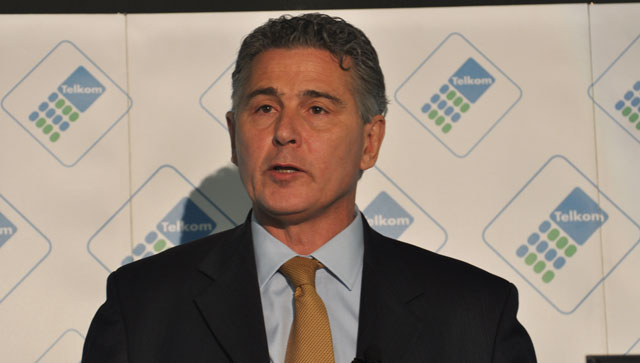
In an effort to arrest declining revenues and remain competitive, Telkom is slashing costs wherever possible, including cancelling newspaper and magazine subscriptions, scrapping its “gift and flower policy”, doing away with bottled water and water coolers and limiting staff travel costs.
This is according to two internal e-mails from Telkom’s chief financial officer, Jacques Schindehütte, which TechCentral has seen.
“We are all are aware of the commercial challenges facing Telkom,” the first e-mail reads. “These can only be discharged if we work together to improve the financial performance of our company.”
Schindehütte says the company’s executive committee is looking at ways to reduce costs in areas “such as buildings that house network infrastructure, fleet management, marketing, travel, outsourced contracts, consulting and procurement” but that “optimum success with regard to improving cost efficiency” will only be achieved if the company can “cultivate a culture of cost consciousness” among all of its employees.
“It is in this context that I ask you to collaborate to reduce unnecessary expenditure by working a little smarter,” he says.
The cost saving moves include doing away with all company-provided refreshments, with the exception of tea and coffee, for meetings with external parties and limiting bottled water and water coolers to Telkom facilities where tests have shown that municipal water is not suitable for consumption.
Telkom will also no longer purchase any flowers, whether for its own premises or for events like the birth of a staff member’s child and all existing newspaper and magazine subscriptions must be terminated as soon as possible and may not be renewed.
All memberships will be reviewed by Telkom’s human resources department and will need to be approved by the executive committee. At the same time, all televisions that are not used for business purposes must be returned to avoid unnecessary spending on TV licences.
The company will no longer use external venues, and external training, seminars and conferences should be “eliminated” unless approved in writing by Schindehütte or another executive committee member.
Telkom is also limiting travel wherever possible. Only group CEO Sipho Maseko can approve international travel and all local travel costs should be kept to the “absolute minimum”, with internal meetings to be done using the company’s teleconferencing facilities.
Schindehütte has also asked that staff “think twice before printing a document or e-mail”.
“This will not only help the environment but also save costs,” he says in the e-mail, adding that the default setting of all printers should be set to “double sided and black and white print”.
Telkom has also called on staff to suggest further cost cutting measures, the best of which will be “recognised in an appropriate manner”.
In a subsequent e-mail, detailing the scrapping of the “gift and flower policy”, Schindehütte says Telkom will “no longer contribute an amount of R150/employee towards the cost of a year-end function” but that “employees who choose to participate in year-end functions will have to carry the costs themselves”.
Telkom’s 2013 financial results, released in June, showed the number of fixed lines in service continue to fall while its mobile network, Telkom Mobile, had all but stalled, recording a mere 3,4% increase in active mobile subscribers.
For the full-year, Telkom reported a decline in operating revenue of 1,7% to R32,5bn. Operating expenses, excluding a R12bn impairment of its legacy network announced in June, were R32bn.
“I want to reiterate that these measures are part of a wider programme aimed at improving the financial performance of the company,” Schindehütte says. “We hope that by setting a ‘cost conscious tone from the top’ we can inspire you to work together to secure a sustainable future for Telkom.” — (c) 2013 NewsCentral Media




